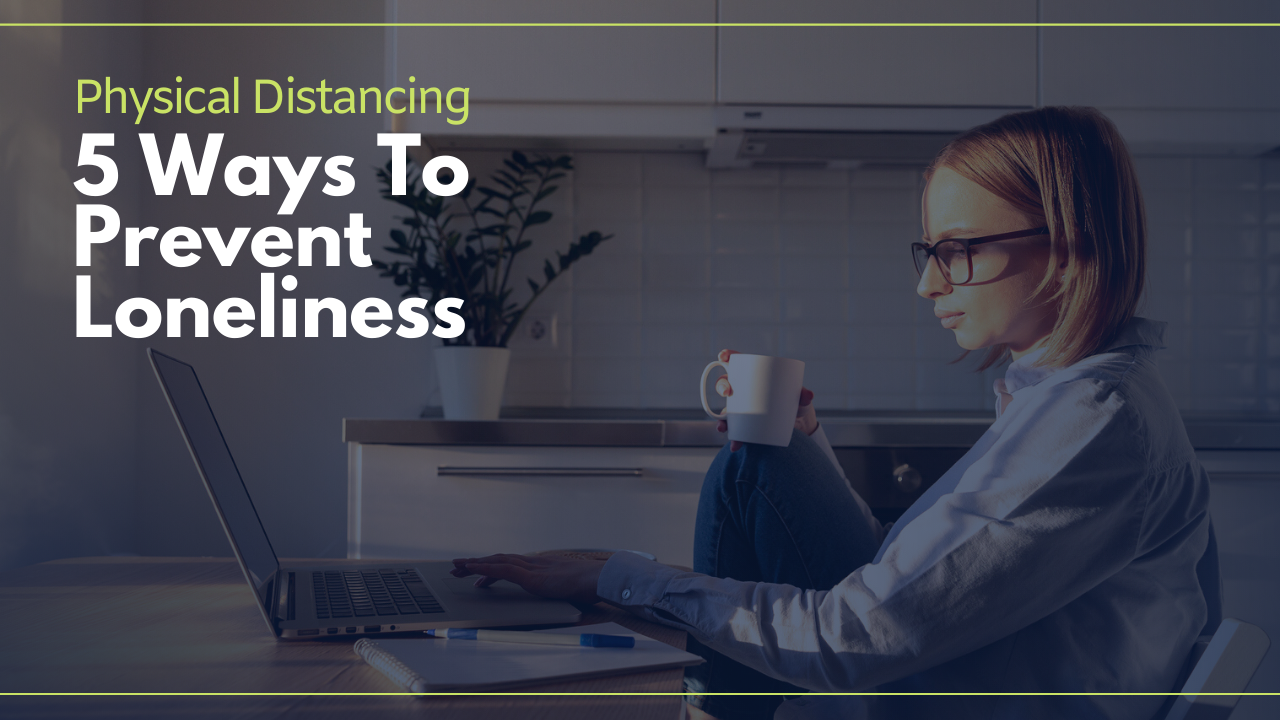- The disruption from lockdown and physical distancing can take a serious toll on our mental health.
- But, just because we have to remain physically apart from one another does not mean that we should isolate ourselves.
- Here are 5 ways to prevent loneliness while practicing physical distancing.
For some, it’s been over a month since they started practicing physical distancing. While some governments are beginning to ease lockdowns and slowly letting people go out, the fact remains that many still have several weeks ahead of remaining mostly at home.
This can take a serious toll on a person’s mental health, particularly those who live by themselves.
The good news is that just because we have to remain physically apart from one another does not mean that we should isolate ourselves. Doing this will only exacerbate loneliness and other mental health problems.
Here are 5 ways to prevent loneliness while practicing physical distancing.
1. Connect with others
Whether it means picking up the phone to call family members, video chatting a friend, or joining a virtual support group, simply staying in touch with other people is an effective way to cope with feelings of isolation and loneliness.
Some ideas to connect with people virtually:
- Search for local support groups that are gathering virtually every week.
- Join a book club. Not only will it help you connect with people, but it will provide you with a great entertainment opportunity while you stay at home.
- Have a Netflix party. Seriously, there’s an app for everything today and you and friends can watch the same movie at the same time via this app.
- Schedule regular hangouts or video chats with your family and close ones.
- Plan a game night. From Words with Friends to video games, there are plenty of options that require more than 1 person.
- Be active in your company’s communication channels.
2. Step outside (if allowed)
Most governments allow people to go outside as long as they do not congregate in large groups. If your government allows it, go outside and take a walk (or a run).
Being outdoors can work wonders for our mental health, but because you’re also likely to see more people, even if you don’t talk to them or approach them, it can help battle feelings of isolation and loneliness.
Try to aim for at least a half-hour or a full hour.
If your government doesn’t allow you to go outside except for necessary activities like grocery shopping, open your windows; breathing fresh air has many benefits and letting in some noise from the streets can be a welcome distraction.
3. Be active
You can be active without having to go to the gym or go outside. Simply moving your body can help give you a boost of energy and improve your mood.
Some workout activities:
- Download a free app that provides exercise and routine ideas.
- Join a live-workout session (search for any local groups in your area hosting fitness classes).
- Search for videos on YouTube. There is something for everyone, whether you like yoga, Zumba, HIIT, or Barre; there are beginner, intermediate, and advanced options.
- Clean your home. Believe it or not, cleaning can get you moving quite a bit, so consider doing a deep clean of your home.
- Go up and down the stairs (if possible).
4. Get help if you need it
Fact of the matter is, these are challenging times. If you find it hard to cope with lockdown and staying at home, and if you’re experiencing a negative effect on your mental health, consider searching for professional help.
Telemedicine has taken off over the past few years and the current crisis has encouraged many doctors to take their clinics online. Reach out to a therapist and consider doing weekly virtual sessions.
If you’re not ready for one-on-one meetings, consider joining a support group.
5. Be kind to yourself
While some people believe that they are their own best company, others find that they are their own worst company.
Now is the time to practice kindness with yourself. Be patient with yourself, pamper yourself whenever you can (i.e. take a bath, have a spa day, cook healthy meals for yourself, sleep-in, etc.).
Practice self-compassion while you figure out a new routine and avoid any activities that can trigger anxiety and fear (yes, that includes checking the news on Twitter or reading negative comments about what’s currently happening).
Find more ideas and tips on wellness here.



 Dr. Gleb Tsipursky – The Office Whisperer
Dr. Gleb Tsipursky – The Office Whisperer Nirit Cohen – WorkFutures
Nirit Cohen – WorkFutures Angela Howard – Culture Expert
Angela Howard – Culture Expert Drew Jones – Design & Innovation
Drew Jones – Design & Innovation Jonathan Price – CRE & Flex Expert
Jonathan Price – CRE & Flex Expert












